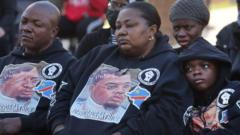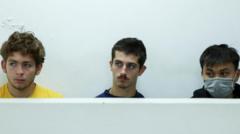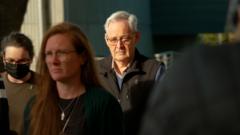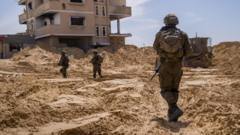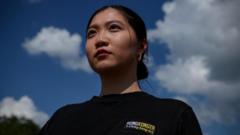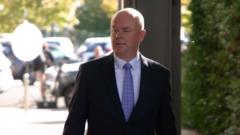In a significant judicial ruling, South Korea’s Constitutional Court has overturned the impeachment of Prime Minister Han Duck-soo, allowing him to reclaim his position as the acting president. Han initially stepped into the role in December after President Yoon Suk Yeol was suspended for attempting to impose martial law, but he faced a swift impeachment himself just two weeks later. Since then, Deputy Prime Minister Choi Sang-mok has been overseeing the government amid ongoing political instability.
South Korea's Constitutional Court Reinstates PM Han Duck-soo Amid Political Turmoil
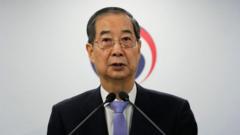
South Korea's Constitutional Court Reinstates PM Han Duck-soo Amid Political Turmoil
Following the dismissal of his impeachment, Prime Minister Han Duck-soo resumes his role as acting leader, maneuvering through a turbulent political landscape in South Korea.
Legal proceedings have gripped South Korea since Yoon's controversial martial law bid, which triggered widespread unrest and protests. The court's decision, made with a 7-to-1 vote, restores Han’s position and comes as he promises to reestablish order within the government. “I thank the constitutional court for its wise decision,” Han remarked following the ruling. His reinstatement arrives on the heels of a looming decision regarding Yoon’s own impeachment, voted on by lawmakers last December.
The Constitutional Court’s upcoming verdict on President Yoon is critical; if upheld, it would require an immediate presidential election within 60 days. As both supporters and opponents of Yoon have taken to the streets of Seoul in recent weeks, the stakes remain high. Political expert Leif-Eric Easley interprets the court's ruling as an indication of its desire for impartiality and stability amid the ongoing transitions of power. He noted that the court's decisions on similar impeachment motions indicate a preference for caution, perhaps as a strategic move to lend legitimacy and unity to future rulings.
The Constitutional Court’s upcoming verdict on President Yoon is critical; if upheld, it would require an immediate presidential election within 60 days. As both supporters and opponents of Yoon have taken to the streets of Seoul in recent weeks, the stakes remain high. Political expert Leif-Eric Easley interprets the court's ruling as an indication of its desire for impartiality and stability amid the ongoing transitions of power. He noted that the court's decisions on similar impeachment motions indicate a preference for caution, perhaps as a strategic move to lend legitimacy and unity to future rulings.

